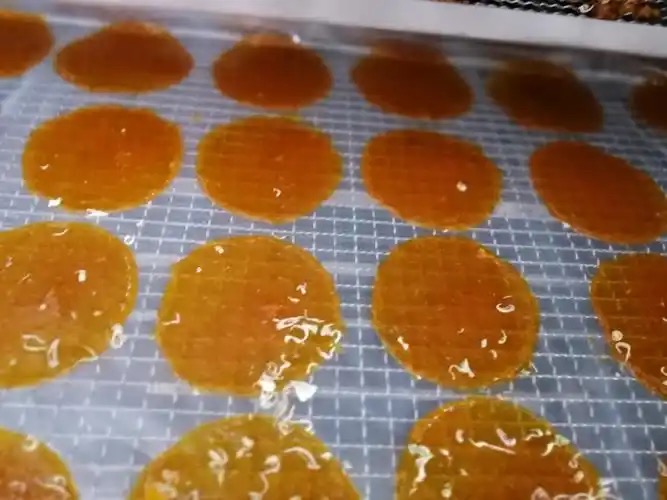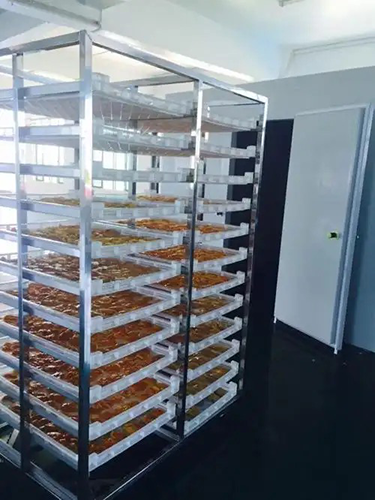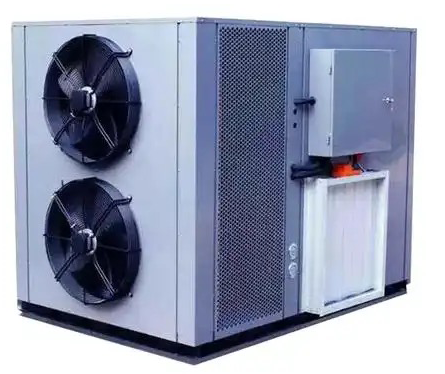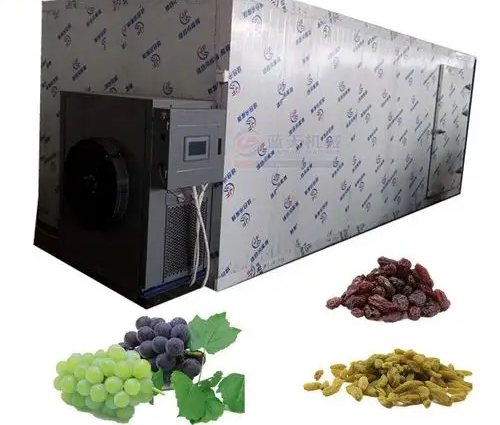
Content Menu
● Introduction
● Understanding Electric Dryer Heat Pumps
● How Heat Pumps Work
● Benefits of Electric Dryer Heat Pumps for Food Drying
>> 1. Energy Efficiency
>> 2. Cost Savings
>> 3. Preservation of Food Quality
>> 4. Versatility
>> 5. Environmentally Friendly
● Considerations When Investing in Electric Dryer Heat Pumps
>> 1. Initial Cost
>> 2. Space Requirements
>> 3. Maintenance
>> 4. Drying Time
>> 5. Noise Levels
● Conclusion
● Frequently Asked Questions
>> 1. What types of food can be dried using heat pump dryers?
>> 2. How much energy can I save by using a heat pump dryer?
>> 3. Are heat pump dryers suitable for home use?
>> 4. What maintenance is required for heat pump dryers?
>> 5. How do heat pump dryers preserve food quality?
Introduction
In recent years, the demand for energy-efficient appliances has surged, particularly in the food processing industry. As a manufacturer of food dryers in China, we recognize the importance of providing high-quality, efficient drying solutions for our international clients. This article explores the benefits of electric dryer heat pumps, particularly in the context of food drying, and discusses whether they are worth the investment for homeowners and businesses alike.

Understanding Electric Dryer Heat Pumps
Electric dryer heat pumps are innovative appliances that utilize a closed-loop system to dry clothes or food products. Unlike traditional dryers that vent hot air outside, heat pump dryers recycle the air within the system, making them significantly more energy-efficient. This technology is particularly beneficial for food drying, where maintaining the integrity of the product while reducing energy consumption is crucial.
How Heat Pumps Work
Heat pumps operate by extracting moisture from the air and using it to heat the air that is circulated back into the drying chamber. This process not only reduces energy consumption but also allows for lower drying temperatures, which is essential for preserving the quality of food products. The heat pump system consists of several key components, including the evaporator, compressor, condenser, and expansion valve, all working together to create a highly efficient drying environment.
Benefits of Electric Dryer Heat Pumps for Food Drying
1. Energy Efficiency
One of the most significant advantages of electric dryer heat pumps is their energy efficiency. They consume up to 50% less energy compared to traditional electric dryers. This reduction in energy usage translates to lower utility bills, making them an attractive option for both homeowners and businesses. The energy savings can be particularly beneficial for commercial operations that rely on large-scale food drying.
2. Cost Savings
While the initial investment in a heat pump dryer may be higher than that of a conventional dryer, the long-term savings on energy bills can offset this cost. For food manufacturers and processors, the ability to dry products efficiently can lead to substantial savings over time. Additionally, many regions offer incentives for using energy-efficient appliances, further enhancing the financial benefits.
3. Preservation of Food Quality
Heat pump dryers operate at lower temperatures, which helps preserve the nutritional value, flavor, and texture of food products. This is particularly important for sensitive items such as fruits, vegetables, and herbs, where high temperatures can lead to nutrient loss and undesirable changes in flavor. The gentle drying process ensures that the food retains its natural qualities, making it more appealing to consumers.
4. Versatility
Electric dryer heat pumps can be used for a variety of food products, including fruits, vegetables, meats, and herbs. This versatility makes them an excellent investment for both home users and commercial food processors looking to diversify their product offerings. Whether you are drying apples for snacks or herbs for culinary use, heat pump dryers can handle a wide range of applications.
5. Environmentally Friendly
By using less energy, heat pump dryers contribute to a reduction in greenhouse gas emissions. For environmentally conscious consumers and businesses, this aspect of heat pump technology is a significant selling point. As sustainability becomes increasingly important in consumer choices, investing in energy-efficient appliances like heat pump dryers aligns with eco-friendly practices.

Considerations When Investing in Electric Dryer Heat Pumps
1. Initial Cost
While the long-term savings are appealing, the upfront cost of electric dryer heat pumps can be a barrier for some consumers. It is essential to weigh the initial investment against potential savings and benefits. Homeowners should consider their drying needs and how often they will use the appliance to determine if the investment is justified.
2. Space Requirements
Heat pump dryers may require more space than traditional dryers due to their design and the need for proper ventilation. Homeowners and businesses should consider their available space before making a purchase. Additionally, some models may require specific installation conditions, such as proximity to a drain for moisture removal.
3. Maintenance
Like any appliance, heat pump dryers require regular maintenance to ensure optimal performance. This includes cleaning filters and ensuring that the unit is free from obstructions. Understanding the maintenance requirements is crucial for maximizing the lifespan of the appliance. Regular maintenance not only helps in maintaining efficiency but also prevents potential issues that could arise from neglect.
4. Drying Time
While heat pump dryers are energy-efficient, they may take longer to dry items compared to traditional dryers. This is due to the lower drying temperatures used in the process. Homeowners and businesses should factor in the drying time when planning their laundry or food processing schedules. However, the trade-off for energy savings and food quality preservation is often worth the extra time.
5. Noise Levels
Some users may be concerned about the noise levels of heat pump dryers. While they are generally quieter than traditional dryers, it is essential to check the specifications of individual models. For home use, a quieter model may be preferable, especially if the dryer is located near living spaces.
Conclusion
In conclusion, electric dryer heat pumps represent a significant advancement in drying technology, particularly for food products. Their energy efficiency, cost savings, and ability to preserve food quality make them a worthwhile investment for homeowners and businesses alike. As the demand for sustainable and efficient food processing solutions continues to grow, heat pump dryers are poised to become a staple in both residential and commercial kitchens.

Frequently Asked Questions
1. What types of food can be dried using heat pump dryers?
Heat pump dryers can be used to dry a wide variety of foods, including fruits, vegetables, meats, and herbs. This versatility makes them suitable for both home and commercial applications.
2. How much energy can I save by using a heat pump dryer?
Heat pump dryers can save up to 50% more energy compared to traditional electric dryers, leading to lower utility bills. This energy efficiency is particularly beneficial for businesses that rely on large-scale drying.
3. Are heat pump dryers suitable for home use?
Yes, heat pump dryers are suitable for both home and commercial use, providing versatility in food drying applications. They are an excellent choice for homeowners looking to preserve food quality while saving on energy costs.
4. What maintenance is required for heat pump dryers?
Regular maintenance includes cleaning filters and ensuring proper ventilation to maintain optimal performance. It is essential to follow the manufacturer's guidelines for maintenance to ensure the longevity of the appliance.
5. How do heat pump dryers preserve food quality?
Heat pump dryers operate at lower temperatures, which helps retain the nutritional value, flavor, and texture of food products. This gentle drying process is crucial for maintaining the quality of sensitive food items.












